Michael Sanders @ 3XP 2023 - The Web3 Tools You Need for Seamless Player Experiences
August 1 2023
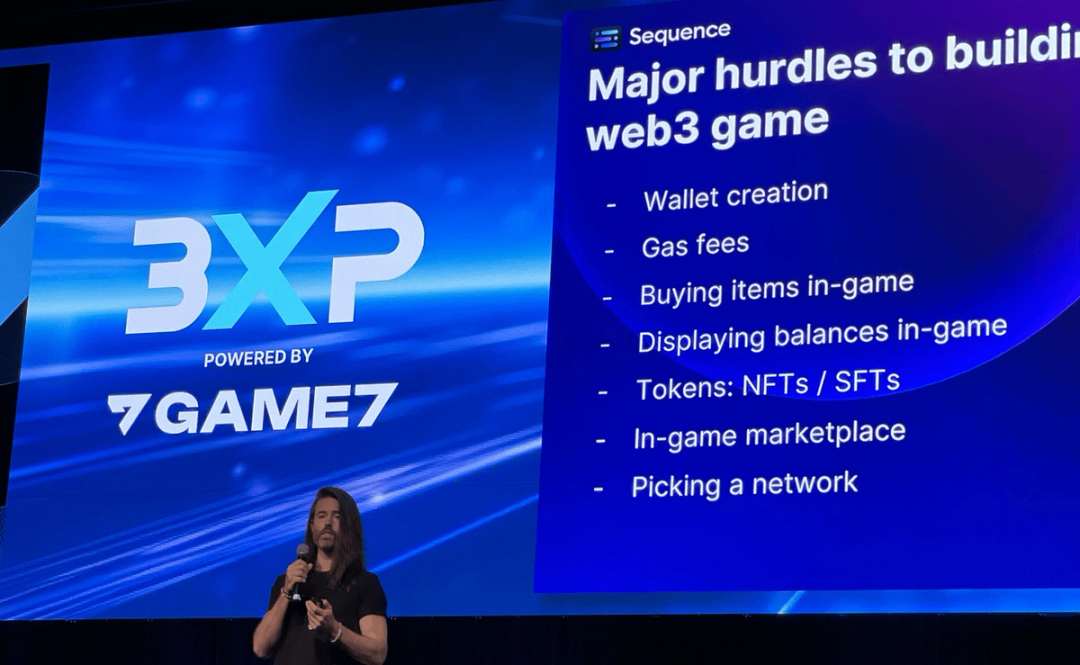
Relive the talk given by Michael Sander, Horizon Co-Founder and Chief Storyteller, on the main stage at 3XP 2023 in Pasadena, as he unravels web3 developers' most pressing challenges in building gaming experiences on-chain, and solutions currently available to them.
Full talk transcript
Hey everyone it's nice to see you all, my name is Michael Sanders, I'm one of the co-founders at Horizon and we're the creators of Skyweaver, which was named 2022's best blockchain game, and Sequence, which is our all-in-one developer platform and smart wallet that makes building web3 games and experiences easy.
Today I'm going to talk about the technical challenges of integrating web3 into games and how you can overcome those challenges with specific tools to deliver amazing experiences to your players.
We started building Skyweaver five and a half years ago in late 2017 and today it's an open Beta with hundreds of thousands of player accounts, a healthy competitive scene a really passionate community, and streamers around the world. We even have Hearthstone, Magic the Gathering, and Pokemon professionals who tell us that we have the ingredients for what could become the greatest trading card game ever, so we're working really hard to realize the game's potential and we've taken a very novel approach to game design and a thoughtful, innovative and sustainable approach to economy design that we continue to evolve.
In fact, most of Skyweaver's players have never had a web3 or crypto experience prior to playing the game, and in order to deliver a seamless experience that anyone can enjoy, we had to solve so many infrastructures and UX pain points along the way, so in the next session of my presentation, I'm going to go through all of those challenges we faced and how you can actually avoid them so that you can just get to market faster and deliver a great gaming experience to your players.
Throughout our journey, we identified seven major hurdles to building a web3 game. So first there's wallet creation, that initial account creation to get your players into your user experience, and then you need to think about gas fees and how to handle them, and then how do you make it easy for players to buy your game items. And once they own the items how do you display them to your users in real-time? Then there's a consideration around tokens and what kind of tokens are best suited for your game, or what combination of tokens are best suited for your community, and then you have to think about the marketplace and trading experience. As a last technical consideration, we'll talk about which network or networks are best for deploying a game on.
As a quick spoiler before we dive into each of those technical hurdles I'll just let you know that we actually solved all of these challenges and the solutions are what make up the Sequence developer platform.

Sequence lets you deliver a seamless web3 experience for your users, whether they’re brand new to crypto or deep in the space.
Jumping into the challenges one by one I'm going to start with wallet creation, which has been brutal up until recently, there are seed phrases, downloading extensions, and needing to figure out what a wallet even is, which is just way too much friction to impose on a player who's simply trying to play a game. To solve this we created the Sequence smart contract wallet. In other words, an account abstraction wallet, so that your users can sign in with social email or your existing authentication system, which means that in one or two clicks your users have a secure, seamless, and robust wallet that connects them to your game and all of web3.
With Sequence, we offer a variety of wallet solutions, ranging from a universal wallet to Wallet-as-a-Service that you can white label, and this just depends on your needs. These Solutions range from non-custodial to self-custodial to semi-custodial and if you don't know what solutions are right for you that's totally cool, just come talk with us and will help you figure it out. What I really want to impress upon you is that you can deliver your players an amazing onboarding and wallet experience by leveraging the Sequence wallet infrastructure.
Now that we've taken care of the wallet, let's talk about gas fees because if you've ever interacted with the blockchain or sent a transaction you know there's a fee called gas that you have to pay every time and this fee needs to be paid in a crypto token such as ETH on Ethereum or Matic on Polygon or Avax on Avalanche, but most gamers and everyone who's new to web3, they don't own these tokens so they can't actually even pay the gas in the first place. If you think of Skyweaver as an example, if a player were to come into the game and want to trade a card and to do so they get hit with a one-cent gas fee in the Matic token, they don't own the gas so they can't actually execute that trade, which is just really bad UX.
To solve this we created something called a transaction relayer, that allows game developers to sponsor transactions so that their users never need to pay or even think about gas, so this really welcomes more money and purchasing power into your ecosystem, and if you've ever wondered about throughput or scalability, Sequence relayer allows you to batch and parallelize transactions so that you can send thousands at once and pay only one small fee,
So your users can now transact, they have their wallet, but what about buying your game items in the first place? This has been a big challenge up until recently because in order for a user to buy an NFT or a collectible, or a game item they've had to own cryptocurrency, and again most people don't own this, so to solve this issue we've built on-ramps and checkouts right into Sequence so that your users can buy a digital collectible, a game item in NFT, directly with their credit or debit card, and they can even buy cryptocurrency with their debit or credit card if you'd like as well, so we've made this purchasing process as familiar and intuitive as web2, and your users don't need to learn about any new technologies.
Once they own game items you need to be able to display them to your users in real-time, so that you know they know what game items they own and what they can play with, and what they can trade, but to actually query the blockchain and deliver that data in real-time is quite challenging due to things like chain reorganizations and finality thresholds. This is a really big blocker for a lot of games and we needed to come up with a solution which we did with the Sequence Indexer, which allows you to quickly and easily query all of the token and collectible and blockchain data that you need to deliver it to your users in real-time in your games UI so that they know exactly what they own and what they can play with.
Sequence ensures that your game is always up and running, so any web3 game will have to interact with a node in some manner, but the issue with nodes is that on occasion they go down and when they do so, your game does too and that's definitely not what you want, so we created the Sequence Node Gateway which aggregates various node providers and then, in the event that one of them goes down, it automatically switches over to one that's up and running to ensure that your game is always up and running for your players.
Now I want to talk about tokens. All of you know what an NFT is i.e Non-Fungible Token, which means that each and every one of the items is totally unique from all of the other ones, and NFTs are perfectly suited for things like avatars, original artworks, and unique pieces of real estate, but NFTs actually aren't that well-suited for most video game items because if you think of most video game items, they have multiple copies, you know skins, trading cards, seeds in a farming game, weapons or cars, there are multiple copies of all of these, so to solve this issue five years ago we created the ERC 1155 Semi-Fungible Token standard, and this enables you to have multiple copies of a game item.
We needed to do this for our game Skyweaver and we understood that a lot of other video games would like this as well and so this is an open-source standard that you can leverage to create game items, whether you want to have a million copies of an item or even if you want to have a one-of-one item, you can do so with the SFT standard. Another great thing about SFTs is they actually allow for liquidity because there are multiple copies, so this enables better price discovery and makes trading easier and more seamless for your players, and I'll explain what I mean in this next section when we talk about marketplaces.
The default web3 solution to date has been to send players to a third-party marketplace to trade your game items, which is unfortunate for two reasons because first off you've invested all this time and energy into bringing players into your game in the first place but now you're sending them outside of your experience, and secondly, your players might feel a bit sketched out because they don't know this third party and they might not trust it, so we've built a better way.
In-game marketplaces allow you to deliver a seamless and tailor-made trading experience for your players while getting to keep them inside of your game, and so when we created the SFTs five years ago we also created something called the Niftyswap protocol, which is an automated market maker for SFTs and collectibles. In other words, it allows your players to instantly, easily, and securely trade your game items, and it's really a win-win because, while your players have this seamless trading experience, you also can charge transaction fees for any activity that occurs in the marketplace, so you get to control the royalties as well.
This is exactly what we did with our game Skyweaver, and a number of our partners leverage these Marketplace tools as well, so here you see this like beautiful intuitive UI that provides a shopping and trading experience that's as good as any web2 shopping experience, yet you're trading web3 collectibles, so you can do the exact same thing: you can build your custom web3 collectibles marketplace by leveraging our no-code, white label solution or you can use an SDK for deeper customization to build that perfect marketplace for your community of players.
As a final technical consideration, let's talk about picking a network because I know that this can seem like a daunting choice, there are so many chains out there, but to make your life simpler choose an EVM-compatible chain. EVM stands for Ethereum Virtual Machine and it's the underlying architecture that chains like Ethereum, Polygon, Avalanche, BNB, Optimism, Arbitrum, Immutable, ZkEVM, Oasys and so many others leverage, and the great thing is that they're all compatible with one another, so in the event that the chain you choose goes down, you can relatively easily port over to another EVM-compatible chain, which protects you against the sort of vendor lock-in that exists with non-EVM chains because if they go down you're sort of stuck and it could be very expensive for you.
The EVM ecosystem just has the most advanced tooling, the most number of users, applications, liquidity, and maturity, so it's a very robust ecosystem. The good news is that Sequence is compatible with all of the EVM chains, so it gives you optionality and security, and peace of mind.
Here's a look at the Sequence stack in its entirety. It's modular so you can use it as an all-in-one solution or you can pick and choose the tools that you feel are best for you, they play really nicely with other web3 tools as well. Sequence really takes care of the infrastructure and UX pain points of dealing with web3, so that you can deliver this amazing gaming experience to your players, from onboarding to playing, to buying and trading, and this is whether you're building on the web mobile Unity or Unreal Engine. All of these tools that you see here on screen come together very nicely in our Builder, which is a no-code dashboard that allows both non-technical and technical teammates to leverage all of these powerful tools while you manage and create your web3 games and experiences.
We have about 67 projects that are currently leveraging Sequence, we just made the tech stack available last year, and we recently received this wonderful testimonial from Sandeep the co-founder up at Polygon who said that of all the web3 infrastructure teams out there, Sequence is the best because it really understands the user experience problems that game builders go through, because we've had to solve it for our own application in addition to many of our partners, and we've built it to both solve today's problems while also architecting the tech stack for where web3 is going.
If you're building a web3 game we'd absolutely love to talk with you and help you get to market faster, and deliver an incredible and seamless experience to your players. If that's you, please reach out to us at sequence.xyz . There you'll find links to everything you need, our docs, and our Discord.
That's everything so thank you so much for your time, everyone.
Sequence makes building onchain simple. Developers and teams can launch, grow, and monetize apps with unified wallets, 1-click cross-chain transactions, and real-time data, all in a modular and secure stack. No more stitching together fragmented tools or battling poor user flows. Sequence is production-ready infrastructure that helps teams ship faster, onboard more users, and scale confidently. From chains and stablecoins to DeFi and gaming, Sequence powers developers and applications across the EVM ecosystem with billions in transaction volume and millions of users. Trusted by leaders in blockchain, Sequence powers today’s onchain apps and delivers future-proof infrastructure for tomorrow’s breakthroughs. Learn more at sequence.xyz.
Written by

Michael Sanders
Co-founder and Chief StorytellerRelated Posts
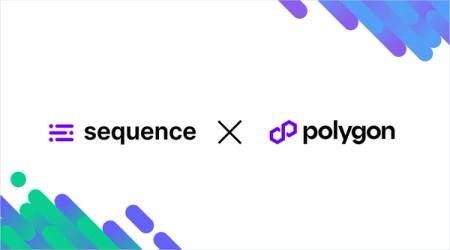
Today marks a major milestone: Polygon Labs is acquiring Sequence.
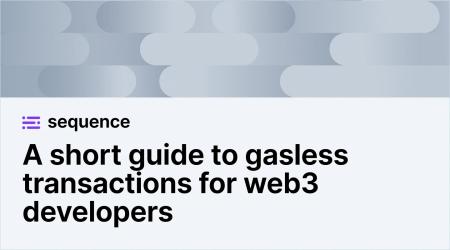
A short guide that explains exactly what gasless transactions are, and why they matter for your web3 experience.
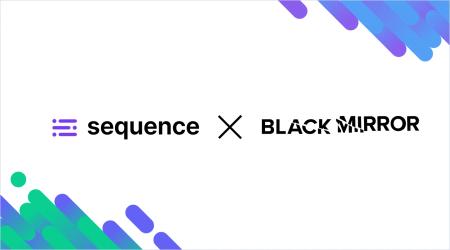
In partnership with KOR Protocol, Sequence and Msquared, Black Mirror's franchise has launched the $MIRROR token and a new web3 experience!
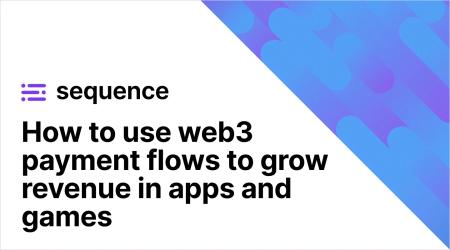
Web3 payment flows allow any app to embed onchain purchases and interactions in a way that feels natural for users. Learn more about them!